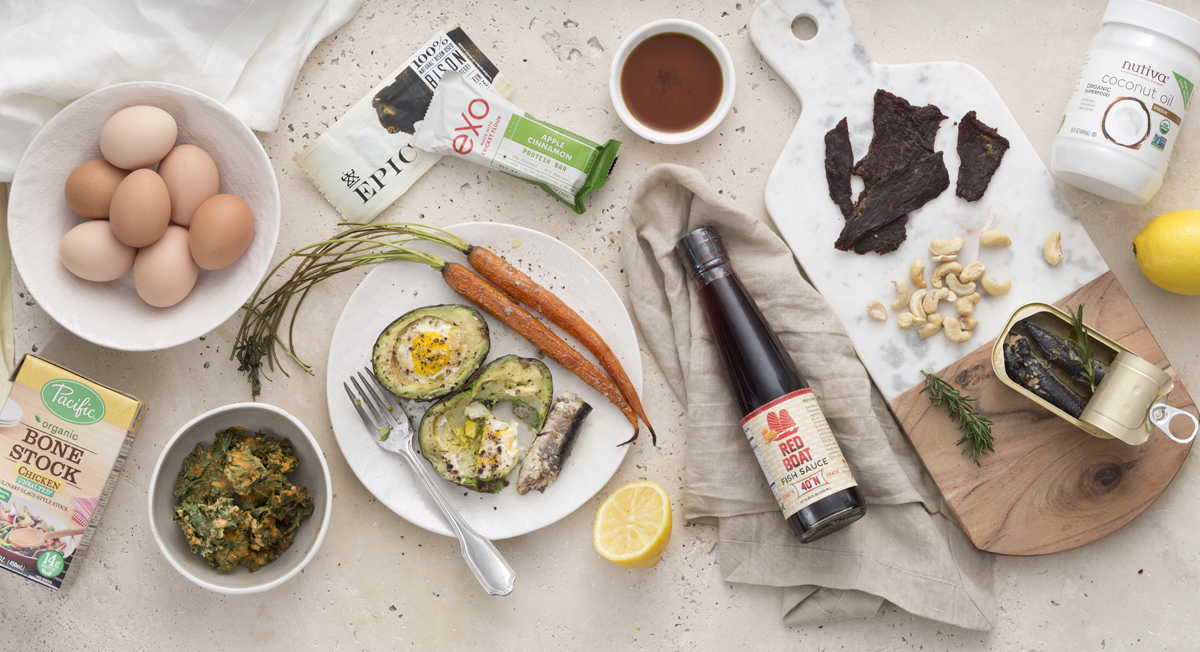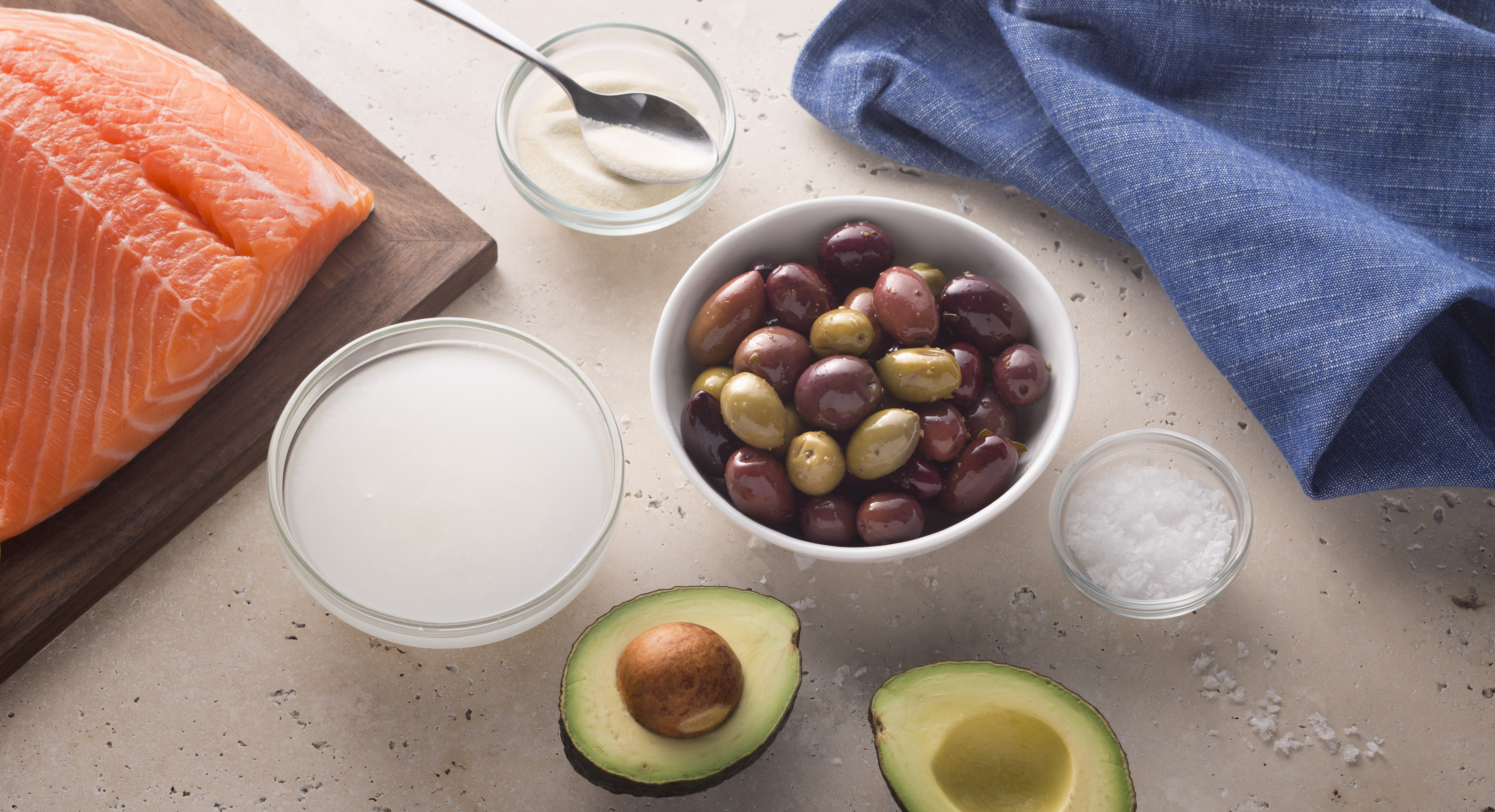Best Diets of 2016
Publish Date: April 5, 2016
Last Update: January 23, 2026
Every year, more than 5 million diet books are sold in the United States.
And a quick scan of the bestsellers on Amazon shows that four of the top 20 bestsellers are diet books—at least at the time of this writing. As one of the heaviest populations on the planet, Americans are kind of obsessed with getting thin and healthy—and there’s a lot of information (not to mention misinformation) out there. But how do you even begin to navigate the diet book–infested waters?
Look for a plan that’s healthy overall, nutritious, easy to follow, safe, and most importantly, effective! We put together our top nine diets to consider, culled from the U.S. News rankings. If you’re trying to figure out which plan might be right for you, this is a good place to start.
DASH diet
Best for: Decreasing blood pressure
Notable supporters: The National Heart, Lung, and Blood Institute (NHLBI)
No, it’s not what the Kardashians eat. The DASH Diet, which stands for Dietary Approaches to Stop Hypertension, was created by the very legitimate NHLBI. It’s billed more as a lifestyle plan than a diet—and the idea is that you adopt this eating style for life. Focusing mainly on reducing sodium levels and increasing intake of essential minerals, it’s designed to treat high blood pressure or hypertension.
Overall it’s relatively balanced—DASH participants are encouraged to eat mostly veggies, fruits, and low-fat dairy; moderate amounts of whole grains, nuts, poultry, and fish; and then limit their intake of sugar, fat, alcohol, and lean meats. While the main goal is to lower blood pressure levels, those on the diet might notice they lose weight as they transition to eating fewer “empty” calories and more nourishing, clean foods.
MIND diet
Best for: Reducing risk of developing Alzheimer’s
Notable supporters: The Rush University Medical Center
A hybrid of the Mediterranean and DASH diets, MIND stands for Mediterranean-DASH Intervention for Neurodegenerative Delay, and focuses on 10 foods that are proven to be beneficial for brain function, while limiting processed foods and red meat. Researchers studying the effects of the MIND diet found it may cut followers’risk of developing Alzheimer’s by as much as 56 percent. Impressive, right?
The top 10 foods to add into your daily diet, according to MIND’s creators, are:
- Leafy greens
- Vegetables
- Nuts
- Berries
- Beans
- Whole grains
- Fish
- Poultry
- Olive oil
- Wine(!)
It’s a pretty easy-to-follow plan, and it’s proven to be great for you! Plus, cutting out processed food and sugar is a surefire way to drop a few extra pounds, even if you’re not trying to do so.
TLC diet
Best for: Lowering LDL cholesterol levels
Notable supporters: National Institutes of Health
According to NIH, most of the 65 million Americans with high cholesterol have no symptoms, yet it’s the No. 1 killer of men and women. Scary! Fortunately, there are ways to reduce “bad,” or LDL, cholesterol levels through diet and exercise—and the TLC, aka Therapeutic Lifestyle Changes, diet, claims to lower LDL cholesterol by 8 to 10 percent in six weeks.
Following the TLC diet can be a little complex, because it involves closely tracking calories daily. And at the outset, you’ll use a TLC-recommended chart to figure out how many calories you should eat per day based on your height, weight, gender, and level of activity. Fruits, vegetables, and whole grains make up the majority of your calories; fats are limited to less than 35 percent of the total intake; dietary cholesterol is capped at 200 milligrams; and sodium is capped at 2,400 milligrams. Participants are also encouraged to work out at least 30 minutes a day.
Paleo diet
Best for: Overall health
Notable supporters: Mark Sisson, Chris Kresser, Mark Hyman, Robb Wolf
Sometimes called the Neolithic diet, the caveman diet, or eating “primal,” it’s based on consuming the same things that were available to our hunter-gatherer ancestors thousands of years ago. The menu back then consisted of lots of meat, fish, berries, tubers, and vegetables—and none of the packaged and processed foods that most modern-day eaters rely on for the majority of their meals.
Paleo proponents believe our bodies haven’t evolved enough to successfully digest processed and/or genetically modified foods like grains, dairy, and sugar. Eating these foods—which happen to be the pillars of the Standard American Diet—are thought to be the root cause of nearly every ailment that afflicts modern humans, including obesity, diabetes, cancer, and autoimmune diseases.
If you go Paleo, you eat a lot more vegetables, meats, and healthy fats, and ditch the starches, grains, and sugar—for more details about what the do’s and don’ts of Paleo,click here. Many people have found that eating this way has helped with gastrointestinal problems, skin issues, and of course, resulted in weight loss.
Vegan diet
Best for: Saving animals, ethical eating
Notable supporters: Brendan Brazier, Bill Clinton, Beyonce, Alicia Silverstone, Jason Mraz
The vegan diet eschews eating all animal products or byproducts, including meat, poultry, eggs, cheese, milk, and honey. People might decide to go vegan because they’re concerned with animal rights, worried about the impact of industrial farming on the environment, ethically opposed to killing animals for consumption, have religious beliefs that prohibit them from eating animal products, or are concerned with the health effects of eating meat.
A vegan diet is a lot simpler that most think—sure, you have to avoid melty cheese pizza, and bacon burgers are off the menu forever, but now there are tons of vegan options for everything from butter to beer! And eating a balanced plant-based diet might result in weight loss and better digestion, and long-term benefits include decreased risk of developing cancer, diabetes, rheumatoid arthritis, hypertension, heart disease.
Want to try going vegan, but don’t know where to start? Check out some of our favorite ways to get your protein fix—no animal products required!
The Fertility diet
Best for: Boosting fertility
Notable supporters: Drs. Jorge Chavarro and Walter Willett of the Harvard School of Public Health
Ladies, this one is just for you. According to two doctors from the Harvard School of Public Health, just making a few changes to your diet can increase your likelihood of getting pregnant. Dr. Jorge Chavarro and Dr. Walter Willett developed their “Fertility Diet” after examining results from the Nurses’ Health Study, which followed the health habits of 238,000 female nurse participants ages 30 to 55 for over 20 years. The data pulled from this long-term study revealed a correlation between diet and lifestyle and women’s fertility.
It’s actually pretty easy to follow: there are 10 steps meant to increase ovulation that include avoiding trans fat, increasing intake of unsaturated fats, decreasing consumption of red meat, eating full-fat dairy, and supplementing with a slew of vitamins and minerals. Chavarro and Willett also recommend daily exercise and ditching soda for good.
There aren’t any studies that support the claims of this diet yet, but that doesn’t mean it can’t improve your chances of getting pregnant. And it couldn’t hurt! It’s healthy overall and relatively easy to stick to—no counting calories or points—and could even help you drop excess weight, especially if some of these food rules are new to you.
Mayo Clinic Diet
Best for: Overall health and maintaining a healthy weight long-term
Notable supporters: Mayo Clinic
It’s safe to say Mayo Clinic’s doctors know what they’re talking about. After all, Mayo Clinic and its satellite locations make up one of the largest networks of healthcare providers in the United States, seeing nearly 1.3 million patients a year. The organization’s large research wing tackles an average of 2,672 studies a year on human health—so if they’ve crafted a diet for improving health and losing weight, it’s gotta be pretty good!
The Mayo Clinic Diet involves more than just the usual meal plan. It has two phases: In phase one, you learn healthy habits and undo behaviors that might have been unhealthy. Phase two focuses mostly on how to sustain those newfound habits and keep off the weight you lost during phase one.
Expect to start eating lots of fruits and veggies, whole grains, and healthy fats. It’s also recommended to get in at least one 30-minute workout daily. What’s not allowed? Added and artificial sugar, meat, and full-fat dairy are all off the table, as are eating in front of the TV (you know you do it!), extra snacking throughout the day, and going out to eat.
Mediterranean diet
Best for: Improving heart health and longevity, enjoying life
Notable Supporters: The American Heart Association, Italians
One of the most enduring “healthy” diets out there, the Mediterranean diet takes its name from the food choices of those living around the Mediterranean Sea. People in this region have a very high quality of life with little disease and longer lifespans compared to the rest of the world.
What they eat is indeed pretty well-balanced—whole, unprocessed foods with an emphasis on healthy fats. In addition to getting plenty of omega-3 fatty acids, whole grains, vegetables, fruits, meat, fish, nuts, dairy, and pure oils, people in the Mediterranean partake in everyday leisure activity, focus on forming and maintaining relationships, and make an effort to reduce stress. These lifestyle factors are just as important as the food.
The best part is that participants have the flexibility to enjoy a big bowl of whole grain pasta with a glass of wine if they’d like. Because it’s not super restrictive, or all about salads and green juices, it’s far more sustainable as a long-term lifestyle than many other options out there. But the lack of firm boundaries can be difficult for some people who prefer more structure, which could make losing weight on this diet challenging.
Flexitarian diet
Best for: Weight loss
Notable Supporters: Author and dietitian Dawn Jackson Blatner
If you’re interested in going vegetarian, but you just can’t commit, the Flexitarian diet is right up your alley. Created by dietitian Dawn Jackson Blatner, it’s exactly what it sounds like—a flexible version of vegetarianism that emphasizes eating fresh, seasonal dishes that are usually meatless, but every once in awhile enjoying chicken or fish. It comes with an adaptable five-week meal plan that newbies can experiment with—Jackson Blatner recommends cooking for yourself, and offers up low-calorie recipes that have five ingredients or less.
There’s no doubt that avoiding processed foods is a good idea, but the Flexitarian Diet might not offer enough protein for everyone (it recommends 50 grams of vegan protein a day, versus the usual 60 grams). And it’sso flexible that people who do better with more structure might feel overwhelmed—particularly those looking to lose weight.
Bottom line: You want to be healthy and happy. Don’t pick a diet because it’s trendy, or because your best friend tried it, or because it promises to make you 10 pounds thinner in just one day. Instead, do your research and choose a plan that matches your philosophy of health and wellness.
Illustration by Karley Koenig
Photo credit: Paul Delmont


